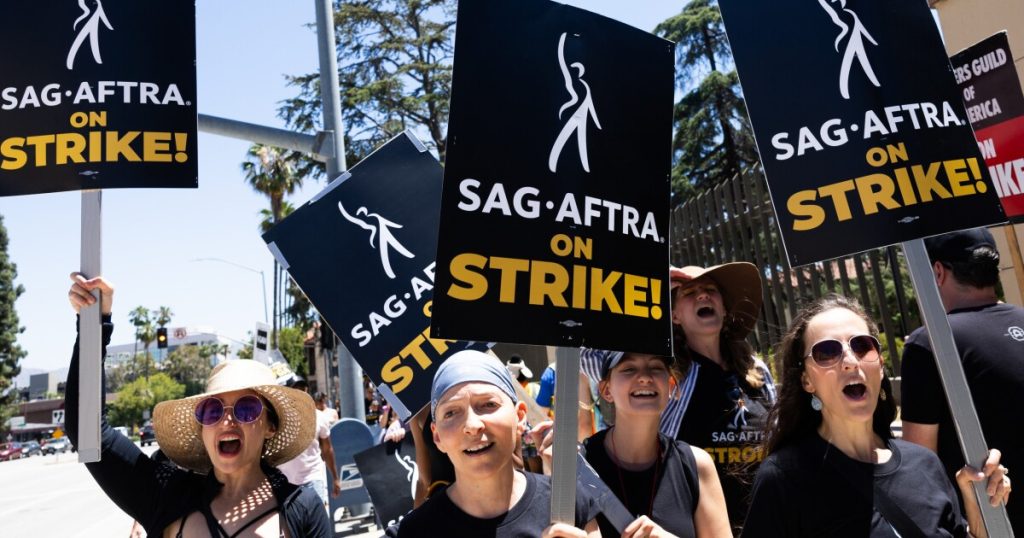Now that actors represented by SAG-AFTRA have been all but given permission to return to work, we’re starting to get a sense of how the Hollywood strikes have affected the economy.
The total losses to the national economy due to the WGA and SAG-AFTRA strikes could be as much as $6 billion nationwide, according to estimates from the economic think tank the Milken Institute. California’s economy has seen about $3 billion in losses, according to the same estimates.
The contract stalemate between the studios and the two unions halted most scripted film and TV production since May 2. It affected not just actors, writers, and below-the-line workers, but also peripheral businesses like prop shops, driving services, caterers and restaurants near studio lots.
“The distinction in particular in California is how many people leave the business,” said Kevin Klowden, chief global strategist of the Milken Institute. “How many people looking at the economics of Hollywood basically couldn’t meet rent, couldn’t afford to stick around? Do they move out? Do they not come back?”
Klowden said the lingering effects of this year’s strikes might be more pronounced compared to the WGA strike of 2007-08. This time around, higher housing costs are leading to even greater economic pressure on striking workers.
Klowden said his estimate of $6 billion in losses is a conservative figure. Other calculations, including one by California State University, Northridge professor Todd Holmes, say the figure is even higher. According to Holmes, there could be as much as $10 billion nationwide in strike-related economic losses, with California shouldering most of that.
“In a lot of ways, [actors and writers] are trying to dig themselves out of a financial hole if they racked up debt,” Holmes said. “They’re still really cutting back on their own personal spending, so that impacts the overall ripple effects across the economy.”
Holmes said the economy will be slow to recover due to the delay in releasing blockbusters and hit TV shows, like Dune: Part Two and new seasons of Euphoria, Abbott Elementary and Stranger Things.
“I really think next year will be a year of recovery,” Holmes said. “I think because the work stoppage has gone on for so long…I’d guess 2025 until things really start to get back to more normal, or to a new normal.”
Klowden agreed that it will take some time for the entertainment industry to recover.
“We’re not going to be at the same level of productions we were seeing in 2021 or 2022,” Klowden said. “The fact that the strike was used to get out of a number of production deals and so on means that there needs to be a reassessment.”
The WGA strike 15 years ago also had a similar affect on the local economy. At the time, one estimate said the strike, which interrupted much of the 2007-08 TV season, cost the Los Angeles area economy about $2.5 billion. However, an updated figure from the Milken Institute put that figure at around $2 billion.
What questions do you have about Southern California?
window.fbAsyncInit = function() { FB.init({
appId : '252516806593564',
xfbml : true, version : 'v2.9' }); };
(function(d, s, id){
var js, fjs = d.getElementsByTagName(s)[0];
if (d.getElementById(id)) {return;}
js = d.createElement(s); js.id = id;
js.src = "https://connect.facebook.net/en_US/sdk.js";
fjs.parentNode.insertBefore(js, fjs);
}(document, 'script', 'facebook-jssdk'));
Source link
